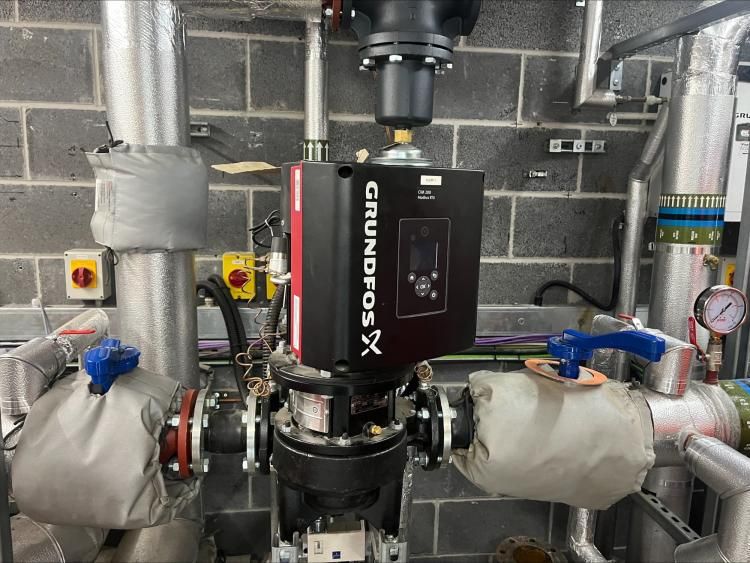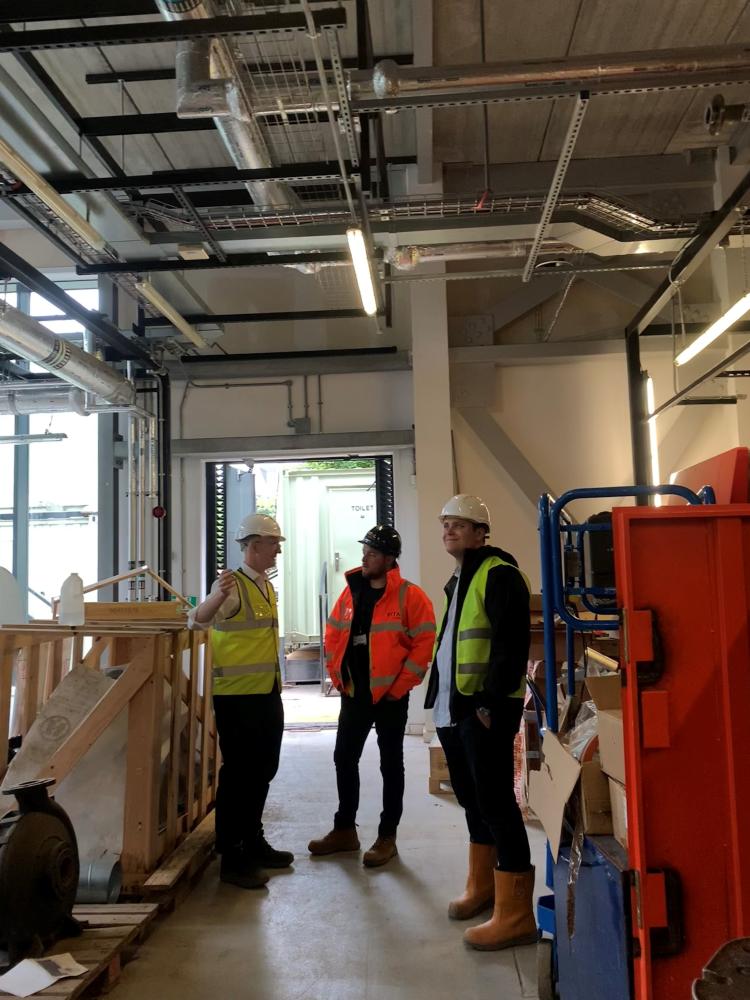Net zero acceleration at Manchester Metropolitan University

Manchester Metropolitan University (MMU) is making significant progress towards net zero by installing multiple technologies to accelerate its 2038 net zero target.
With a vibrant community of over 34,000 students and more than 4,000 staff members, it is one of the largest higher education institutions in the UK.
The university – like the city itself – is a powerhouse of knowledge and innovation and can boast many significant achievements and memorable alumni.
MMU is celebrating its bicentennial this year and is showcasing two centuries of success and creative legacy, highlighting its ongoing efforts to build a better future for all.
That’s why it’s investing in a series of projects to help it become net zero within six years.
During a recent visit to Manchester, we had the opportunity to see a decarbonisation project at Birley Fields Energy Centre and gained insight into the challenges faced during the project.
The building, used by both students and academic staff, is home to the university’s health campus which includes four blocks of halls of residence.
Trenches are being dug ready for the installation of a ground source heat pump along with a water source heating system.
The newer sustainable technologies are replacing existing gas-fired boilers and a redundant combined heat and power unit with new, sustainable technologies.
Once the work is completed, the estimated annual carbon reduction will be 1,558 tonnes of carbon emissions.
To support the improvements, the university was awarded £5.6 million under Phase 3b of the Public Sector Decarbonisation Scheme.
We administer the funding on behalf of the Department for Energy Security and Net Zero.
Paul McCullough, senior project manager at Manchester Metropolitan University said:
“The grant funding has been crucial in allowing us to carry out this project.
“Our university’s goal is to achieve net zero emissions by 2038, and once completed, this project will contribute to 30% progress towards our target.
“Following the completion of the Birley Fields campus, we will shift our focus to other buildings on campus."
“The grant funding has been crucial in allowing us to carry out this project.
“Our university’s goal is to achieve net zero emissions by 2038, and once completed, this project will contribute to 30% progress towards our target.
“Following the completion of the Birley Fields campus, we will shift our focus to other buildings on campus."
Paul McCullough, senior project manager at Manchester Metropolitan University

Plant room pump
Credit: Salix Finance
The Birley Fields project is just one of many initiatives across the university aimed at enhancing sustainability through decarbonisation and energy efficiency measures.
These efforts are expected to increase operational costs due to the switch from natural gas to electricity, with an estimated annual increase of £228,000 to £302,000.
However, the benefits of these projects extend beyond environmental impact, fostering community cohesion and creating better facilities for all.
As Manchester Metropolitan University continues to innovate and lead in sustainability, it remains a testament to Manchester’s legacy as a city built on progress and advancement.

Paul, Brad and Ned discussing the cooling systems
Credit: Salix Finance


